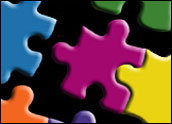
You have probably transacted business with Paciolan at some point in your life, even if you don’t recognize the name. Perhaps you did it just by purchasing event tickets.
Paciolan is a 30-year-old, private-label vendor that powers ticket sales for college athletic games, professional sports and performing arts organizations. So if you have ever gone to a ball game or the ballet or a concert, you probably used Paciolan’s technology.
Indeed, it is the second-largest ticketing engine in North America, serving some 500 organizations that disperse some 100 million tickets every year. So, in fact, you’ve probably used it many times.
For much of its corporate history, these transactions have been typically the same: A venue wants to sell tickets to an event, it advertises said event, and the fans come to them.
Selling a Service
However, changing expectations on the part of customers, along with ever-improving technology and a new economic backdrop, prompted the company to develop CRM functionality that can be embedded in its ticket engine for an additional fee.
“This is all about helping our users provide better customer service,” Craig Ricks, Paciolan’s vice president of marketing, told CRM Buyer. “When you are selling live entertainment you are selling a service.”
Capturing Interactions
The application is focused on a centralized customer data hub and on a few core premises: One, repeat ticket sales have become the lifeblood for many sporting teams and two, performing arts organizations like to keep a detailed record of their patrons’ likes and dislikes.
The feature set allows users to capture just about any interaction it has with customers down to a surprisingly granular level.
For example, a ticket seller for a charity event can see to whom it sold tickets, where those people sat and with whom and whether they were accompanied by family — whose records would be similarly appended.
This data often proves to be valuable for cross-sell and up-sell reasons, Ricks says.
It also helps customize further interactions. “If someone is a long-time donor or member, it can be good to be able to refer to events they attended, asking if they enjoyed such-and-such performance,” Ricks said.
Lead Generation, Too
The CRM functionality can also serve as a lead generator, he continued.
“If a sporting event sells out and there are 500 people who tried to but were unable to get tickets, the system can capture that. Then, the sports team’s marketing staff can use this list to try to sell season passes for the next year,” Ricks said.
The company had the resources to build the functionality in-house, he added, although some clients do use outside CRM vendors such as Salesforce.com.
“There are 200 people who work for Paciolan and about 80 percent of us are technologists. We knew we could do it and we know our customers better than anyone else, so we knew what they needed,” he added.
























































